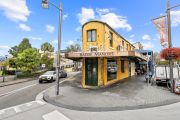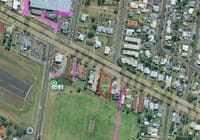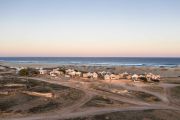
The property tax surcharge creating an opportunity for local investors
Offshore investors are retreating from the ownership of commercial real estate assets in Victoria and Queensland, where additional surcharges on foreign buyers are cutting yields by up to 1 per cent. This has prompted syndicators to create funds for local investors to buy cheaper assets.
Richmond Bridge, a firm with $1.9 billion in assets under management, has raised about $150 million in equity for a $200 million fund that, with 50 per cent leverage, would give it $400 million to buy a portfolio of 10-15 assets, managing director Peter Wylie says.
The fund manager is targeting local institutions and high net worth investors to buy assets that, under Victoria’s 4 per cent foreign surcharge and Queensland’s extra 3 per cent impost, have become less attractive for offshore buyers, traditionally a large source of demand.
“We’re specifically raising a fund targeting domestic investors to acquire really high-quality, well-located assets in Brisbane and Melbourne that have good long-term fundamentals but are being significantly discounted because there are no bids from foreign buyers,” Wylie said.
Some analysts warn of the end of industrial property’s golden run and the coming wave of new supply that will cut rents by as much as 11 per cent, but Australia remains an attractive market for investors, with solid governance and infrastructure and a growing population driving demand for logistics.
The surcharges levied in the two states were hitting offshore investors harder at a time when recent statutory valuations of unimproved land values, typically worth about 30 per cent of an asset value – were increasing by as much as 50 per cent, Wylie said.
“If it’s a $60 million asset, we would say on average you’d expect a $20 million valuation now, following revaluation, which is up significantly,” he said.
“On $20 million-worth of land value, you would have an extra $600,000 of foreign owners’ land tax leakage, which equates to 1 per cent of the asset value every year.”
‘Opportune time’
Ultimately, offshore investors would recalibrate their expectations on returns and make their way back into the market, but until then, this was opening a window for local buyers, Wylie said.
“The next little period is an opportune time for domestic capital to be taking advantage of the reduced liquidity in those markets,” he said.
Foreign investors were increasingly considering jurisdictional tax rates, said Sass Jalili, head of industrial and logistics research at commercial agency CBRE.
“We’re starting to see some offshore groups, especially from Asia and Europe, rethink how they approach the Australian market,” Jalili said.
“Some are shifting their focus toward NSW and WA, where the foreign buyer surcharges are either lower or don’t apply at all. Others are looking at alternative structures – like partnering with local fund managers or getting involved earlier through development – to stay active without taking on the full hit of these taxes.”

The issue shows the impact state property taxes can play in directing capital in and out of specific assets. Queensland will announce its state budget next month. In Victoria, papers tabled in the state budget last week showed property taxes are scheduled to rise to 47 per cent of the state’s total tax take over the next four years.
“We’re not bullish on Victoria, full stop,” said Shane Quinn, the chairman of fund manager Quintessential Equity.
“If you are going to talk Victoria, the only place you could probably talk is land-rich industrial, which has really been hammered by the offshore capital.”
That had created opportunities for local buyers in the southern state, where Quintessential was looking at “at land-rich industrial assets that have the biggest impost to foreign capital,” Quinn said.
“We’re looking at the possibility of buying into a market where the foreigners are incentivised to get out – we’re looking at taking advantage of that,” he said.
“We may get something in the next 12-18 months, but it would have to be incredible buying to warrant us going to Victoria.”
The tax is not an issue in NSW. Victoria and Queensland are the only two jurisdictions to impose the foreign or absentee owner land tax surcharge on top of other costs such as stamp duty, general land tax and council rates. WA has a separate metropolitan region improvement levy.
“In this environment, institutional capital is being more deliberate around jurisdictional costs, and for foreign investors, working with a local platform could be an effective way to stay in the market while navigating the shifting landscape,” CBRE’s Jalili said.











